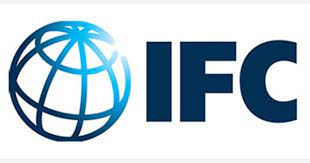Dubai November 4 2021: OPEC and its allies are standing firm on boosting crude output by a modest 400,000 b/d for December, despite pressure from the US and other consuming countries for more volumes to bring surging oil prices down.
The OPEC+ alliance endorsed the plan on Nov. 4, shrugging off intense lobbying for more volumes by the US, which has blamed the group’s output quotas for high gasoline prices.
A L S O || R E A D
Oil Declines Ahead of OPEC+ Meet as U.S. Supplies Edge Up
Japan and India have also lodged complaints with the OPEC+ coalition, saying an overheated market could derail their economic recovery from the pandemic.
But OPEC+ ministers for weeks had been signaling that they intended to stick with their previously agreed monthly 400,000 b/d output rises, viewing the global natural gas shortage as the reason for rising oil prices.
Stubbornly high COVID-19 infection rates in many parts of the world and expected seasonal weakness in oil demand as the calendar turns to 2022 are also supporting a judicious OPEC+ approach, ministers have said.
A L S O || R E A D
Aramco Warns World’s Spare Oil Supplies Are Falling Rapidly
“The comments likely indicate higher price objectives than previously assumed, as well as a preference to let Brent drift over $80/b, for at least a time, rather than risk oversupplying the market ahead of seasonal demand weakness in Q1,” S&P Global Platts Analytics said in a note.
Platts assessed Dated Brent at $82.22/b on Nov. 3, up 63% year to date.
However, the decision, reached in a relatively quick meeting, will put a spotlight on the alliance’s shrinking spare production capacity, which is increasingly concentrated in Saudi Arabia, the UAE, Iraq, Kuwait and Russia.
Shrinking capacity
Several OPEC+ members, notably Angola, Nigeria and Malaysia, have been unable to pump at their quotas due to technical issues, maturing fields or internal instability.
That means the agreed 400,000 b/d increase is likely to be much smaller in reality, keeping the market tight, unless the countries with spare capacity make up for other members’ shortfalls.
Platts estimated the 19 OPEC+ members with quotas underproduced their caps by a combined 570,000 b/d in September, for a compliance rate of 111.5%.
The resumption of Iran nuclear deal talks, scheduled for Nov. 29, could provide some relief, if an elusive deal that lifts sanctions can be reached. Platts Analytics expects that Iranian oil supply could rise by some 1.5 million b/d with a deal.










